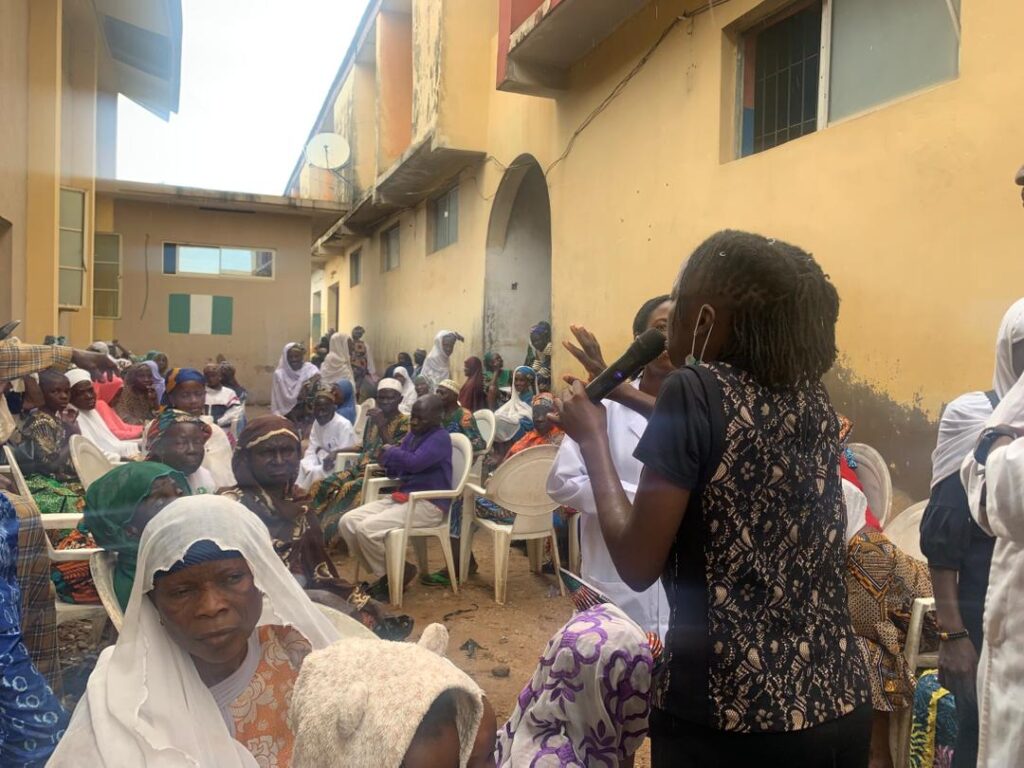“The best way to find yourself is to lose yourself in the service of others,” said Mahatma Gandhi. While some might see this as just another outreach, for people like Mr. Lasimi Lawal, a retired soldier battling poor eyesight, it was hope. For Mrs. Siyanbade, a trader and mother who had a skin tag surgically removed, and for the over 316 other registered participants, many of whom were elderly and vulnerable, it was a source of support and comfort.

The IFUMSA Medical Outreach is an annual community service event organised by the IFUMSA Health Awareness Club (IHAC), part of the Obafemi Awolowo University Medical Students’ Association (IFUMSA). This year’s outreach, which took place on Saturday, September 20, brought together about 20 medical professionals, 80 students, and volunteers to provide crucial services to the Ede community in Osun State. These services included day case surgical operations, eye screenings and ophthalmology services, dental consultations and care, Body Mass Index (BMI) assessments, as well as screenings for blood pressure, blood glucose, urinalysis, and HIV testing and counselling. Other services included free medications and free medical consultations.
In previous years, the IHAC had offered free healthcare services to communities such as Ipetumodu, Ifetedo, Ikire, Ifewara, and now Ede. Held at the Timi of Ede’s Palace, with surgical operations taking place at the General Hospital in Ede, the outreach provided a full day of healthcare. In addition to medical services, the medical students also engaged the participants in interactive health discussions, offering vital information and guidance on leading healthier lives.

Student volunteers Orojo Bamidele Modupe and Ajayi Damilare, final-year medical students, praised the efforts of the IHAC and emphasised their motivation to serve humanity beyond the hospital walls. They noted that one of the main challenges was insufficient funding, explaining that more resources would allow them to provide a greater number of relief items and essential services. They also highlighted the difficulty of managing the large crowd. Both volunteers offered suggestions for improving healthcare access: Orojo Bamidele suggested better healthcare finance schemes, while Ajayi Damilare advocated for improved government budgeting.
One of the beneficiaries, Mr. Lasimi Lawal, shared his story. A retired soldier and former police officer, he now works at Adeleke University. After retirement, he began facing eyesight challenges and now needs the assistance of a young boy to guide him. He mentioned that accessing healthcare is difficult due to cost and that he often relies on outreaches like this for treatment. In Yoruba, he expressed his profound gratitude, saying, “What you have done is so helpful, not just to me but to all of us. May God continue to help you.” He also appealed to the government to provide more affordable and accessible healthcare services.
This outreach is not just a yearly routine; it is a profound expression of love for humanity and a deep desire to serve. It serves as a powerful reminder that healthcare is vital, and that even small acts of service can create a profound impact on a community. In an interview with the Chairman of the Local Organising Committee, Osuntoye Sunday, who is a 600-level medical student at OAU, he emphasised that the annual outreach is a key way the association contributes to global health priorities like health equity and universal health coverage. The motto “wholesome health for all” drives them to bring services to underserved communities where healthcare is often inaccessible due to cost.

The Chairperson of the IHAC, Ibironke Bright, expressed deep gratitude for her team, stating that with their support, they were able to make a significant impact, including the success of this year’s outreach, which is “unarguably our biggest event of the year.” For her and the club, the outreach is a time to make a positive change and to help people who, due to financial constraints, would otherwise remain at home with their health challenges. The major challenge, she stated, has always been funding, as social impact projects are expensive. Looking to the future, she is confident the 2026 edition will be even more impactful, thanks to the abilities and commitment of the junior colleagues who will take the lead. With the necessary support and partnerships, she believes they will surely deliver again.

